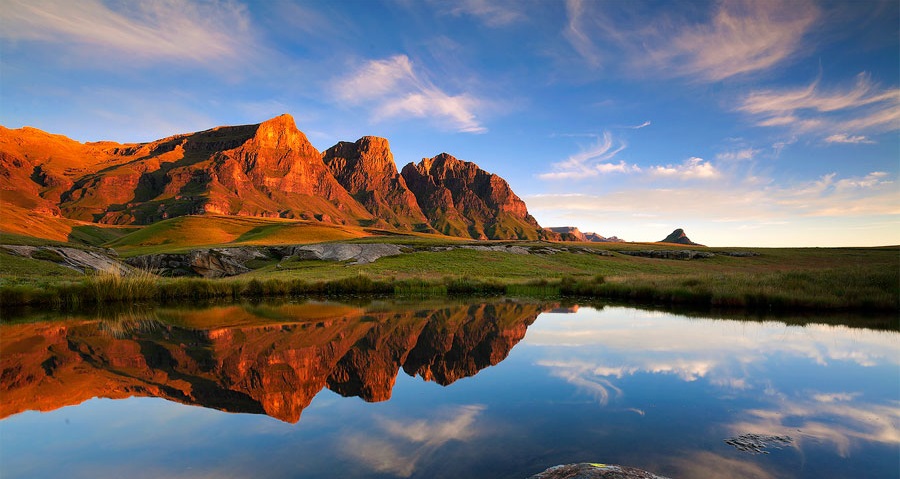Peru

Peru is a Latin American country with Spanish, Quechua and Aymara as official languages. The majority of its 31 million population are Roman Catholics. Its capital and largest city, Lima is one of the largest cities in South America, and it lies in the coastal area of the country.
Lima is home to some iconic buildings which make up the Historic Centre of Lima, a UNESCO World Heritage Site which has historic buildings such as Basílica y Convento de San Francisco, a church and convent; the Plaza Mayor, known as the birthplace of the city of Lima; the Government Palace; Museo Larco (Larco Museum) which has collection of pre-Columbian art, among others.
The Jorge Chavez international airport and other airports across the country have domestic flights which make travelling within the country easier. There’s bus service at the airport which makes getting to your hotel easy and safe. There are trains in some cities, however, the most popular means of transport is with buses and taxis. Buses are called micros or combis by locals.
Peru has a diverse climate and weather varies across the region. The coastal areas have a warm climate; the mountains have a cold climate and the Amazon forest areas experience regular rainfall. Generally, the dry season is May - October while the rainy season is November – April.
Like many South American countries, Jeans is a popular clothing, you should also have a jacket, as there are regular showers. There’s a risk of malaria on the coast, so insect repellents are recommended.
Rice is a staple and ceviche, a dish prepared by marinating fish in lime juice is popular. A sour drink called Pisco is regarded as a national drink.
Peru has a rich culture, with music, dance and festivals showcasing the country’s cultural wealth and depth. Some popular festivals in Peru are:
- La Candelaria, in honour of Puno’s patron saint, the Virgin of Candlemas,
- Inti Raymi (Festival of the Sun), in honour of the revered Incan sun god Inti.
- Fiesta de la Vendimia (The Wine Festival), a celebration of Ica’s grape harvest.
- Mistura, an annual culinary fair that showcases Peruvian cuisine
Asides attending Peru’s colourful festivals, there’s plenty more to do in Peru, such as:
- Visit the Amazon rainforest
- Explore the beaches (surfing, biking, horseback riding)
- Inca trail to Machu Picchu, this is one of the most popular activities in Peru. Hiking the Inca trail is a way to explore the different environments from cloud forests to mountain and forest scenery. The trail also features archaeological pieces of Inca civilization
- Coffee tour in Cusco
- Go on an excursion at Iquitos
Some other popular tourist destinations are:
- Manu National Park – covering an area of 1.5million hectares, it is home to a wide range of flora and fauna and is a UNESCO World Heritage site
- Huascaran National Park - also on the UNESCO World Heritage list, it has over 600 glaciers and has the snow-capped Mount Huascaran where you can enjoy mountain sports. The park is described as having a landscape of rare beauty.
- Nazca lines – an archaeological site located in Nazca desert. It features drawings of figures etched into the sands.
- Mancora - a resort town home to the Mancora beach, which has a reputation among surfers.
- Sacsayhuaman – located in the Cusco region, it is home to the famous Inca wall, an archaeological site showcasing Incan architecture.
There are many hotels and accommodation in Peru. The tourism industry in Peru is booming and in an attempt to make it more appealing to tourist, there are tourism police (Policia de Turismo), and they speak English.


